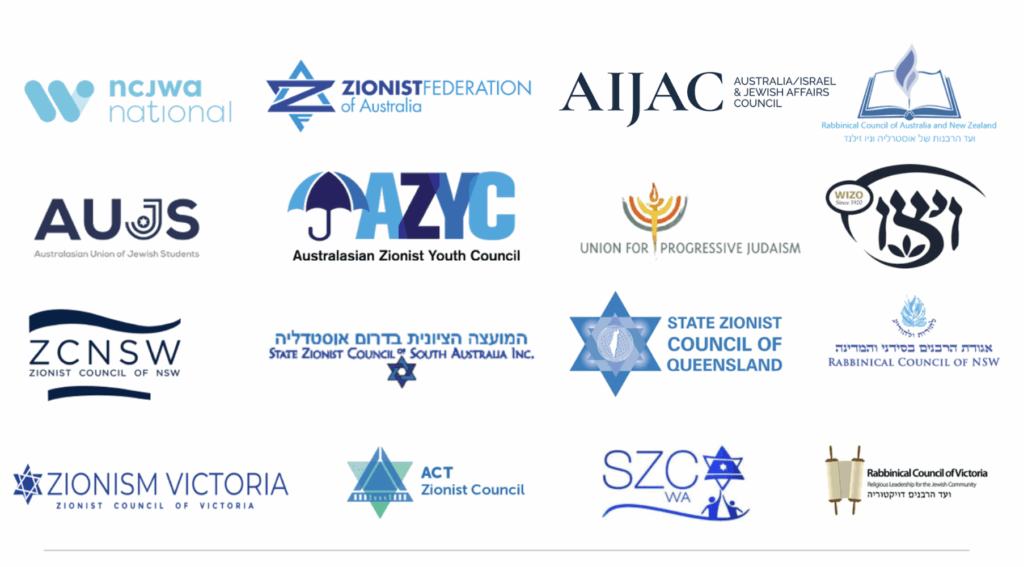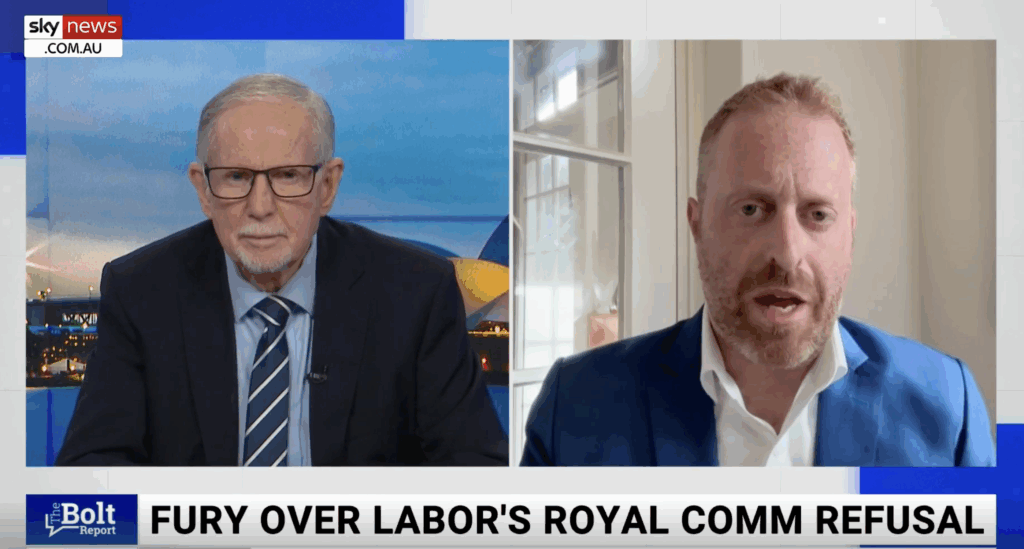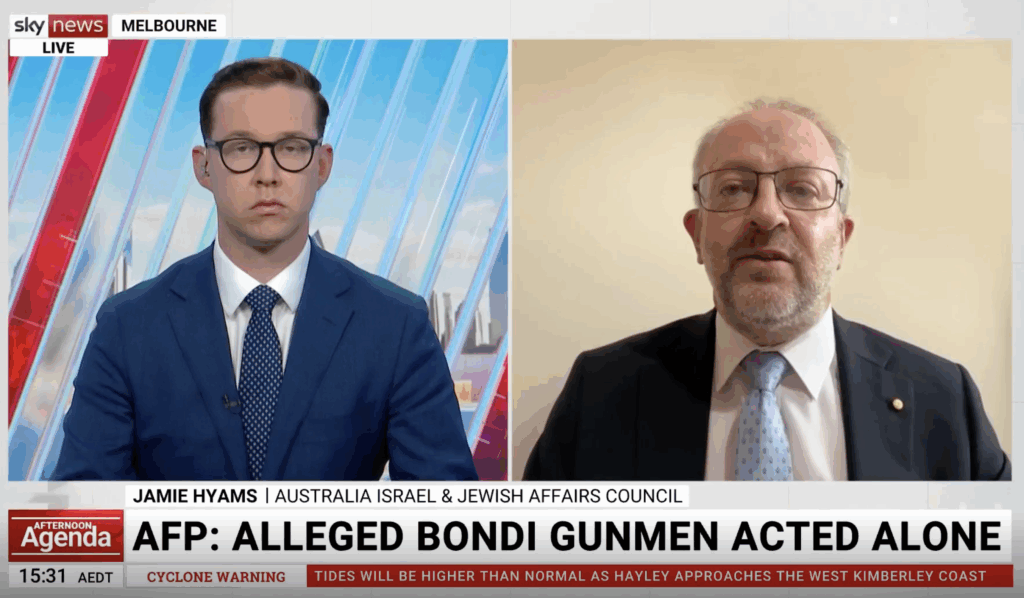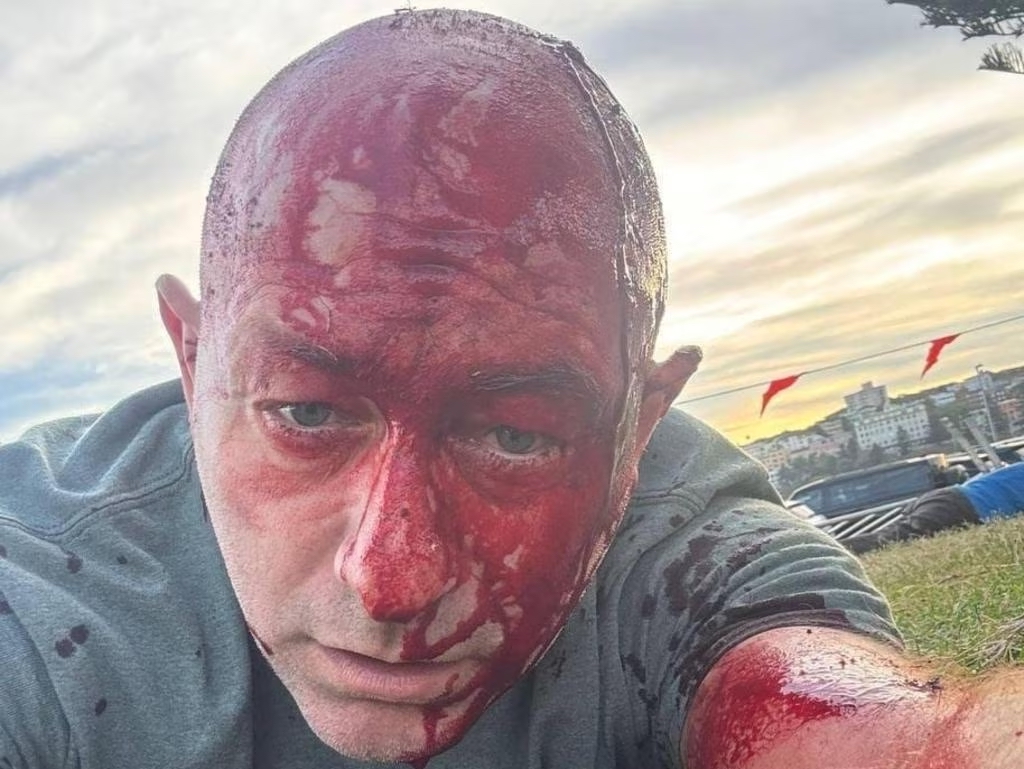IN THE MEDIA
Australia taking a decisive step toward protecting its Jewish and Iranian communities
September 1, 2025 | M. Mehr, Ran Porat
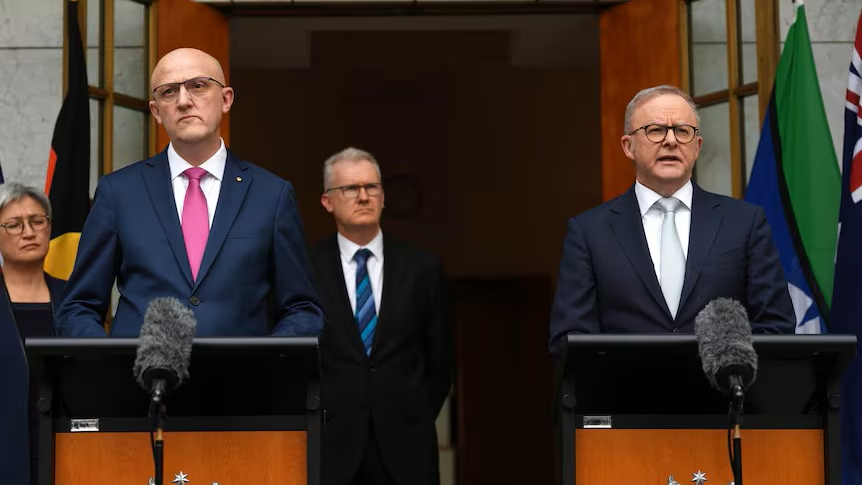
ABC Religion and Ethics – 29 Aug 2025
On Tuesday, 26 August, Prime Minister Anthony Albanese took an extraordinary diplomatic step: he declared Iran’s ambassador to Canberra persona non grata, ordered senior Iranian diplomats to leave the country immediately, and suspended operations in Australia’s embassy in Tehran.
The prime minister made this announcement while standing next to Mike Burgess, the director-general of the Australian Security Intelligence Organisation (ASIO), which had made the assessment that Tehran’s security services — principally the Islamic Revolutionary Guard Corps (IRGC) — used intermediaries to direct at least two antisemitic attacks on Australian soil. These were the arson attack on Lewis’ Continental Kitchen in Sydney last October, and the firebombing of the Adass Israel Synagogue in Melbourne last December. “These were”, the prime minister said, “extraordinary and dangerous acts of aggression orchestrated by a foreign nation on Australian soil.”
After announcing the government’s diplomatic response — which also included their intention to list the IRGC as a terrorist organisation in Australia — the prime minister stated:
The Australian people want two things, they want killing in the Middle East to stop, and they don’t want conflict in the Middle East brought here. Iran has sought to do just that. They have sought to harm and terrify Jewish Australians and to sow hatred and division in our community.
While Tehran has strongly denied the allegations, dismissing them as “baseless” and politically motivated, the government insists that the evidence provided in the ASIO assessment — which reportedly included intelligence provided by Israel — left them in little doubt as to who was behind these attacks. As Home Affairs Minister Tony Burke put it on Wednesday:
It came from the IRGC … [A]n extraordinary level of care and rigour goes into these ASIO assessments, they are not made lightly, and when something like this is made public to the Australian people, it’s because there is a very, very high level of confidence of its contents.
The latest credible intelligence aside, there have been concerns for some time now about Iran working through proxy networks and engaging in forms of diaspora repression. For example, Iran’s ambassador to Australia, Ahmad Sadeghi, has previously posted inflammatory social media comments — such as urging that “wiping out the Zionist plague out of the holy lands of Palestine happens no later than 2027” and praising Hassan Nasrallah, the slain leader of the terrorist organisation Hezbollah, as “a great personality … and an unparalleled leader” — for which he was formally rebuked by Australia’s Department of Foreign Affairs in 2024. And there are Australians who have ties to Iran’s international propaganda network, Al Tajamu.
The IRGC’s motivation to instigate terror attacks against Jewish targets in Australia is related to its conflict with Israel. Since the 1979 Islamic revolution, Israel has been regarded as the archenemy of Iran, the “little Satan” in service of the “Great Satan” — namely, the United States. Over the years, Israel has operated openly and secretly against Iran, its proxies and its nuclear weapons project, including carrying out assassinations of top Iranian officials, scientists and public figures. The recent twelve-day US-Israeli war on Iran included precision strikes that killed senior IRGC commanders and damaged key facilities linked to the IRGC’s regional networks.
As a result, Tehran is forever looking for ways to take revenge against Israel, including by trying to recruit spies within the State of Israel to perform acts of violence and espionage. The regime has, moreover, never abandoned attempts to target Israelis and members of the Jewish community and Jewish organisations abroad.
The IRGC’s diplomatic cover for violent operations
There is a well-documented pattern, stretching back decades, of Iranian intelligence and security services directing attacks from abroad, using embassies and other Tehran-linked religious and community centres to facilitate its operations.
Among the most egregious is the 1994 bombing of the Argentinian Israelite Mutual Association (AMIA) Jewish community centre in Buenos Aires, which killed 85 people and injured more than 300 others. Argentinian courts have long insisted that Iran was responsible for this attack, and in June this year federal judge Daniel Rafecas ruled that ten Iranian and Lebanese men would be tried in absentia for their role in the bombing — among them three top Iranian intelligence figures, Ali Fallahian, Ali Akbar Velayati and Mohsen Rezaei.
In 2018, Austrian-based Iranian diplomat Assadollah Assadi was arrested in Germany for his alleged role in a plot to bomb a large Iranian-opposition rally near Paris. Assadi was accused of being an officer in Iran’s Ministry of Intelligence and Security (MOIS), working under diplomatic cover. Assadi was subsequently freed and flown back to Tehran in May 2023 as part of a prisoner swap with Belgium.
Indeed, human-rights groups and legal scholars have pointed to Iran’s hostage taking practices, using arrests of foreigners to extract concessions, secure prisoner swaps and avoid judicial accountability. One such example was the 2020 incarceration of Australian academic Kylie Moore-Gilbert in the notorious Evin prison, which ended after a similar prisoner exchange deal.
In July 2024, Germany banned the Islamic Centre Hamburg (IZH) after raids on some 53 locations. Berlin’s interior ministry said the IZH promoted “aggressive antisemitism”, supported Iran’s terror proxy in Lebanon, Hezbollah, and was effectively controlled by Tehran. These assets, it stated, enabled the IRGC’s freedom of movement and operational space in parts of the West.
Diaspora communities’ long call for action
The Iranian diaspora is relatively large. Some estimates suggest it totals around five million globally, with substantial communities in North America, Europe and Australia. Many left to escape political repression, arbitrary detention and economic collapse — conditions that make diasporas especially sensitive to transnational intimidation.
Members of religious minorities — notably the Jewish and Baha’i communities, and converts — as well as dissidents, journalists and activists overseas, were frequently singled out through digital and physical campaigns of intimidation, surveillance and terror attacks. We could point here to the Mykonos restaurant murders of key members of the Iranian-Kurdish opposition in Berlin in 1992, and the attempted assassination of a prominent women’s rights advocate and journalist, Masih Alinejad, in 2022 and 2023 in the United States.
For many years, Iranian-Australian community groups have urged Canberra to take more decisive actions against the regime. A Senate inquiry in early 2023 recorded hundreds of submissions from Iranians and Iranian-Australians asking the Australian government to list the IRGC as a terrorist organisation. Diaspora activism continued when, in June 2024, the Australian Iranian Community Alliance — a coalition of 26 Iranian-Australian organisations and groups — submitted an appeal addressed to Prime Minister Anthony Albanese, Foreign Minister Penny Wong and Attorney General Mark Dreyfus, publicly warning against the IRGC’s threats and calling for proscription.
Jewish organisations, such as The Australia/Israel & Jewish Affairs Council (AIJAC) have repeatedly pressed the federal government to act in a similar way, pointing to the persistent and ongoing threats by Iranian officials to destroy the State of Israel and the Iranian regime’s campaigns to disseminate antisemitism worldwide.
Changing tactics and staging grounds
For a long time, Iran’s security apparatus and networks tied to the IRGC were comprised of wealthy elites, officials and their families who moved their assets and residency to Western countries — perhaps most notably Canada, the UK and the United States — establishing footholds within diaspora communities for intelligence collection, influence operations and logistics for clandestine activities. Canada, in particular, was for a long time a safe haven for senior Iranian figures and their families — a dynamic that Ottawa only began to confront publicly in 2024 by designating the IRGC as a terrorist organisation, prompted by diaspora pressure, high-profile cases and mounting evidence.
As Western governments have tightened the net around Tehran’s overseas networks and raised the cost of overt operations — through proscriptions, legal bans and sanctions — Iran’s security services appear to have shifted toward lower-visibility activities abroad and tactics designed to allow Tehran to deny any ties to these operations. These tactics included using intermediaries to hire criminal elements to perform certain malicious tasks, such as the attacks on “soft” civilian targets as opposed to well-protected government or military installations.
As part of this change, Iran’s covert networks started to move finance, influence and, where possible, also proxies to Australia — a more politically open civil society space with what they believed was weaker monitoring over foreign interference in internal affairs.
The question of timing
The breakdown of relations between Iran and Australia is taking place at the same time that there are unprecedented tensions between Israel and Australia. The federal government’s announcement in mid-August of its intention to recognise a Palestinian state at an upcoming UN conference precipitated a public spat between Israeli and Australian prime ministers.
The surge in antisemitism in Australia since the Hamas terror attack on 7 October 2023, including during mass demonstrations against Israel and the Gaza war in cities like Melbourne, Brisbane and Sydney — where supporters of the Iranian regime carried a portrait of Supreme Leader Ayatollah Ali Khamenei — has fuelled fear within the Jewish community and led to claims that the Albanese government is not doing enough to counteract this wave of hate against Jews.
This prompted Israel’s prime minister, Benjamin Netanyahu, to accuse his Australian counterpart of “weakness” and of betraying the Jewish community — a comment that received an angry response from top Australian officials. Fearing that the bilateral relations would deteriorate even further, Jewish community leaders urged both sides to lower the tone and use diplomatic channels to reduce tensions.
For all this, it is important to point out that the decisive action taken by the Australian government against Iran has nothing to do with the tensions with Israel, nor is it connected to the conflict in Gaza. It’s an independent development that has more to do with Tehran’s pursuit of revenge against Israel and the antisemitism woven throughout the fabric of the regime.
The geopolitical road ahead
The IRGC combines official state authority with proxy warfare, assassinations, hostage-taking and other tools that, in practice, constitute a transnational terrorist network. Australia’s decisive measures — including the decision to shut down the diplomatic mission, place IRGC elements on sanctions/terror lists and expel the ambassador — should serve as a practical model for other democracies.
To be more effective, that response should be further reinforced by transparent briefings to parliament and the public, coordinated allied pressure, and practical protections for vulnerable communities through rapid-response reporting lines, adapted witness-protection measures and clearer routes to report transnational harassment.
Iranian diasporas hope states will unite and respond swiftly to threats linked to the IRGC, because this debate transcends community-specific concerns. Protecting Jewish and Iranian Australians is inseparable from safeguarding Australia’s social cohesion, public safety and democratic norms. Failure to act decisively risks eroding trust across the civic fabric that binds us all.
Moreover, decisive measures will also reverberate through the lives of ordinary Iranians and refugee families who have already suffered. That is why Iranians and Jews in the diaspora continue to urge Australia to combine deterrence with protection to defend their communities.

